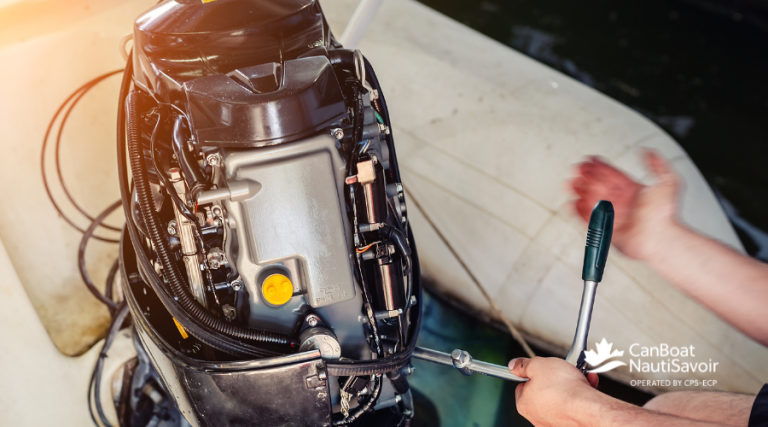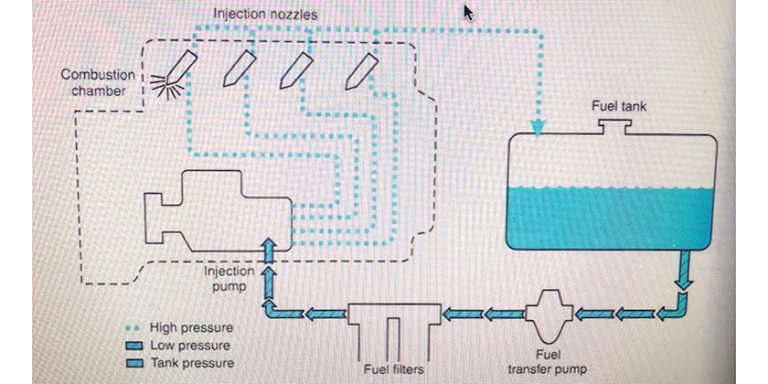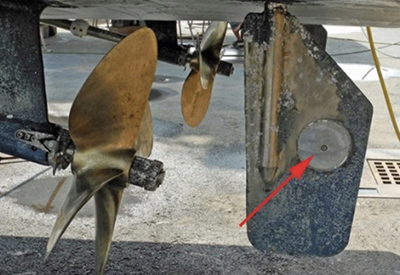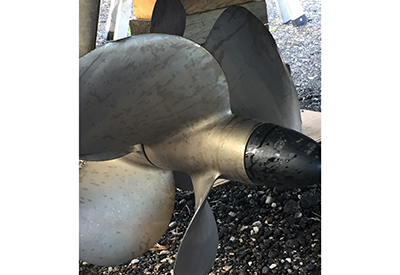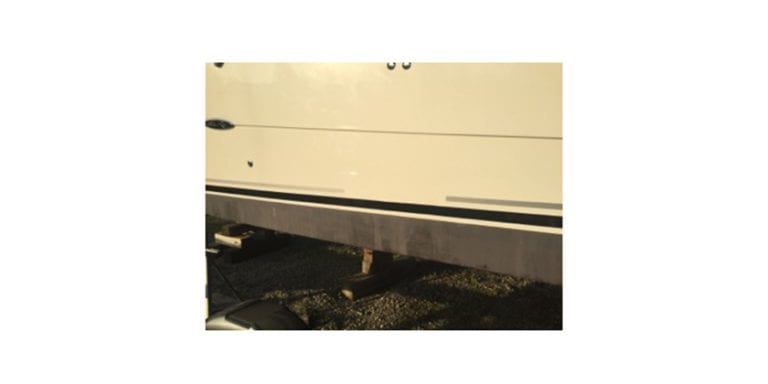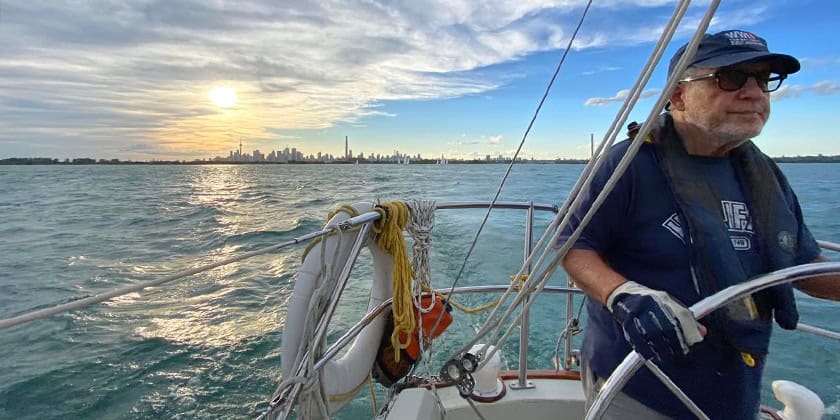Ask Andrew: Tune-ups
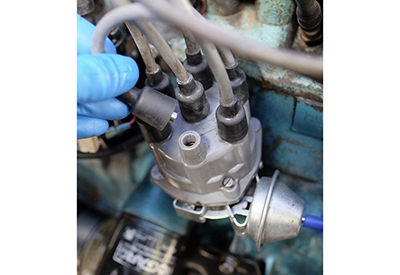
July 9, 2020
an engine’s distributor, providing power to the spark plugs
Many boats are now on the water after a COVID-imposed hiatus – and with a shortened ‘prep’ period, usually filled with antifouling, polishing, cleaning, engine check-overs and the installation of a new Christmas/boat-show electronic doo-dad.
Despite the hiatus and rush to launch, many of us have had a chance to enjoy some time on the water. With time on the water, some of us get to experience quality time in the sun and surf. Smooth sailing, as it were. For the rest of us, though, the first trip or two of the season uncovers problems, repair needs and reminders of maintenance items left over from last year.
The battle of boater looking for a marine mechanic, and a marine mechanic trying to find more hours in the day begins.
The marine industry is seasonal in nature, and mechanics get used to the types of questions and service requests that come in regularly, depending on the time of year: winterizing and shrink-wrapping at the end of the year. Spring start-ups and cleaning in the early spring. With summer in full-bloom, we’re in ‘tune up’ season. (As an aside, I like to call August ‘I hit something’ season. That was a joke. Sort of.)
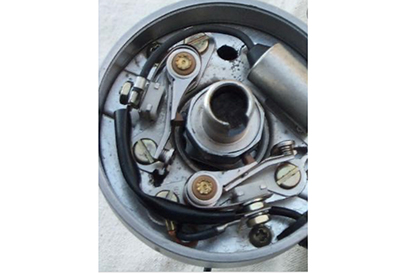 an older ‘points and condenser’ style distributor. This has been largely replaced with electronic ignitions in modern engines.
an older ‘points and condenser’ style distributor. This has been largely replaced with electronic ignitions in modern engines.
The term ‘tune-up’ means different things to different people – partly as a function of the era and complexity of vehicles (including cars and boats) that you’ve been exposed to.
To understand some of this, it’s important to break down what an engine needs to run. And at the root, it needs three things:
1) Fuel – to feed the engine
2) Spark – to ignite the fuel
3) Compression – to have an ideal environment for the controlled explosions to take place
A traditional old school ‘tune-up’ would involve the cleaning and replacement of the distributor’s internal components (ensuring that spark is available), adjusting the engine timing, cleaning and adjustment of the carburetor (providing the right mixture of fuel), and other assorted maintenance items.
Today’s engines need the same basic things to function (fuel, spark and compression), but they experience a different environment, creating different problems with different solutions. The tune-up of days gone by doesn’t really exist anymore, because modern engines are more complex, yet are also designed to require less maintenance. That said, they still require the same three elements, and they still develop runability issues, based on a lack of spark or fuel:
Spark: only a small percentage of boats operating today require adjustment to points and condensers, that said, distributors are still found on modern engines, but they are electronically controlled and adjusted.
Fuel: There is an even mix of engines that are EFI based (Electronic Fuel Injection) and carbureted. Carburetors need occasional cleaning and adjustment. The biggest change in the last decade with respect to fuel is the use of ethanol in fuel found at the pumps. Ethanol is an alcohol additive that helps reduce emissions in automobiles – but wreaks havoc in seasonal equipment (boats, lawn equipment, snowmobiles and ATVS). Ethanol attracts water, and causes fuel to break down over time. It damages gaskets, diaphragms and fuel lines. Boaters should be aware of this, and seek to fill-up with ethanol-free fuel. Regardless of the type of fuel used, the way that it’s stored, and the rate at which it’s used: fuel filters are an essential innovation to have aboard. A fuel filter removes contaminants, but also separates water from the fuel, preventing the water from reaching the engine and causing rough starting and running.
Today, we’re able to better name, classify, diagnose and repair an engine – and many of these runability issues will be similar from boat to boat.
Here are three very common examples:
Boat A starts and runs well at dock. While underway, it seems to lack power. The operator pushes the throttle, the RPM’s increase, but the boat isn’t really going any faster. In many cases, this is an issue with spark. Spark plugs may be fouled. The distributor’s rotor may have developed corrosion, preventing it from making a strong electrical connection.
 (Left) a water separating fuel filter
(Left) a water separating fuel filter
 (Right) a canister style water separating fuel filter
(Right) a canister style water separating fuel filter
Boat B has trouble starting. The throttle needs to be pumped before starting, and it takes a few attempts to get it started. Once running, all appears fine. Away from dock and out in open water, the operator hits the throttle, hoping to take off on plane, and the engine bogs. Rather than getting faster and taking off, it seems to slow down and get sluggish. It almost seems to groan as it’s urged forward. In many cases, this is caused by water in the fuel. The fuel filter may need to be removed and replaced. Water many need to be removed from the fuel (or fresh fuel added).
The operator of Boat C can’t start the engine. Sometimes the engine makes a clicking noise as the key is turned. Other times no sound is made. After a few turns of the key, and a few clicks, the engine starts. It’s frustrating and there seems to be no pattern to when the engine will start easily or not. This can be pared down to a battery or power issue. Because of this, the operator will be tempted to buy a new battery and install it (only to experience the same issues). Where this is a power issue, it may not be due to a failed battery – rather to a device called a solenoid. The solenoid delivers power to the starter motor as the key is turned. The clicking noise is the solenoid engaging, but not delivering power. When there is no clicking noise, it indicates that the solenoid is on its last legs.
In each of these cases, the operator may ask for a ‘tune up’ to be performed – but the mechanic should be able to quickly look at these symptoms and determine more precisely what’s needed, rather than recommending and billing for a generic ‘tune-up’
What can you do to stay on the water longer between tune-ups? Here are a few maintenance items to help avoid some common modern problems:
1) Change the spark plugs per manufacturers recommendations, or when needed. Inspect and clean at least annually
2) Buy ethanol-free fuel, and ensure that you have a water-separating fuel filter installed between the boat’s fuel tank and engine
3) Replace the fuel filter annually, and check it for water regularly
4) Maintain your battery, per manufacturer’s recommendations and keep a voltmeter onboard to test the battery’s strength regularly.
5) If runability issues persist, see your local mechanic for a more in-depth diagnosis.
A final thought: If you’d like a tune-up, request one. What you’ll get is an evaluation of the ability of the engine to create spark, deliver fuel and provide compression. The mechanic will test each of these elements and may make adjustments or replace components that are necessary to run ideally. If your engine is new to you, won’t start at all, or has been sitting unused for a substantial length of time, you’ll want to have a tune-up performed.
Proper maintenance is the best way to stay on the water and make the most of this (too short) boating season.
 Andrew McDonald is the owner of Lakeside Marine Services – a boat repair/maintenance firm based in Toronto. Andrew has worked in the marine industry for 12 years and is a graduate of the Georgian College ‘Mechanical Techniques – Marine Engine Mechanic’ program.
Andrew McDonald is the owner of Lakeside Marine Services – a boat repair/maintenance firm based in Toronto. Andrew has worked in the marine industry for 12 years and is a graduate of the Georgian College ‘Mechanical Techniques – Marine Engine Mechanic’ program.

